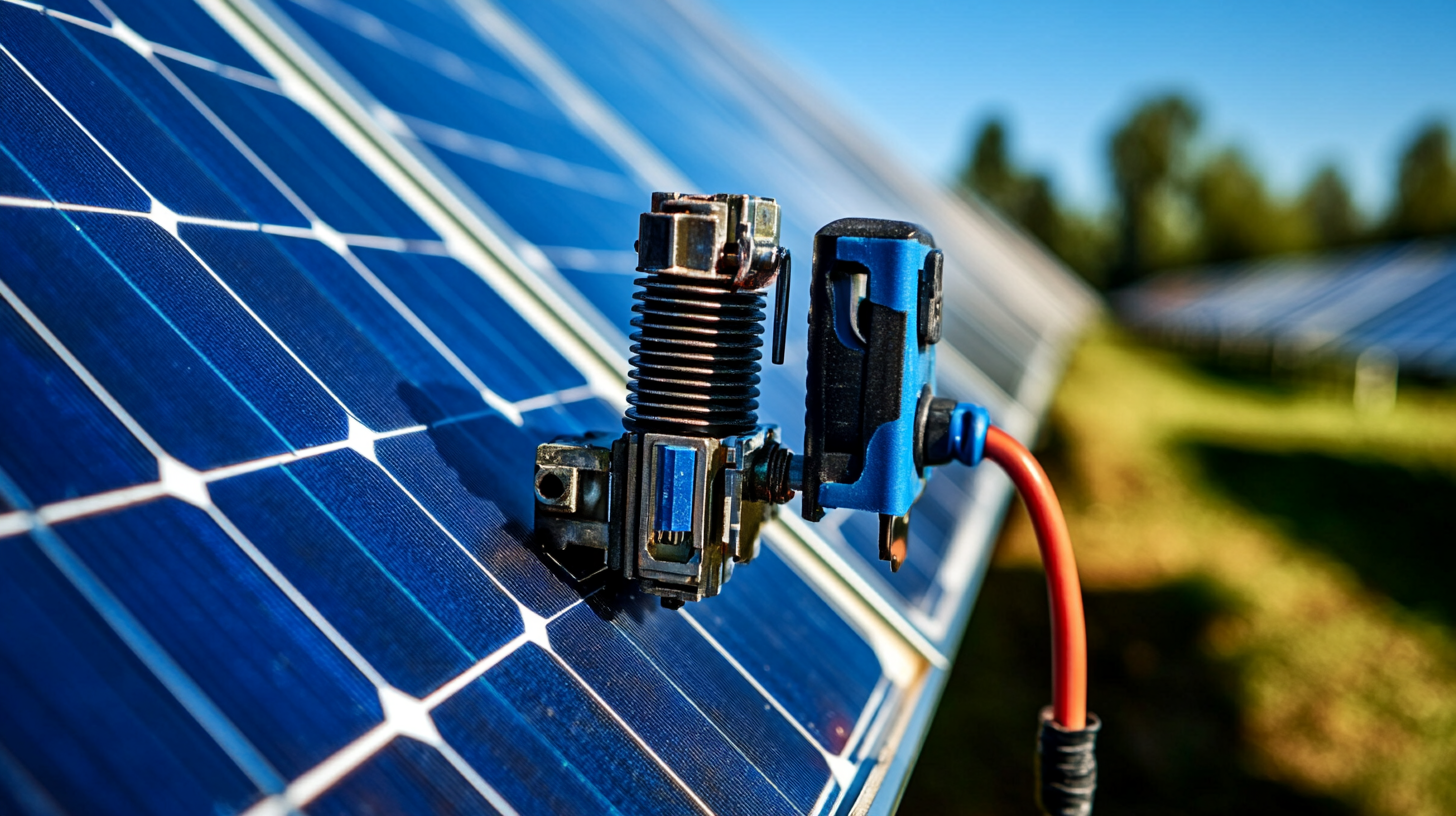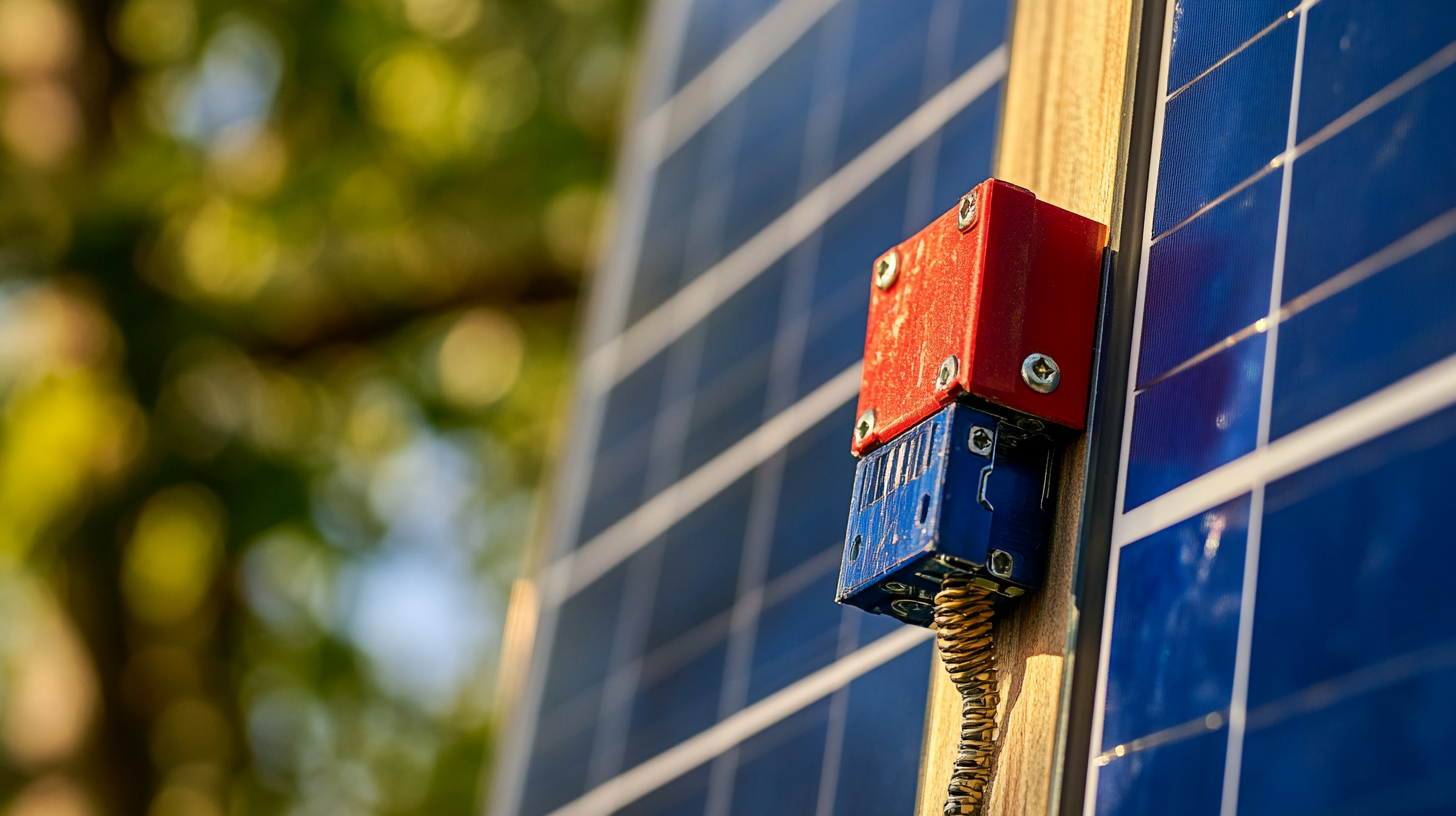
Essential Checklist for Choosing the Best Pv Solar Fuse Holder for Your System
When diving into the world of solar energy, selecting the right components for your photovoltaic (PV) system is crucial for optimizing efficiency and safety. One of the often-overlooked elements in solar installations is the PV Solar Fuse Holder. This component plays a significant role in protecting your system from overcurrent, ensuring that your solar investment operates smoothly and securely. However, with numerous options available on the market, choosing the best PV Solar Fuse Holder can be overwhelming.

In this ultimate guide, we will provide you with an essential checklist that highlights key factors to consider, helping you make an informed decision that meets your specific system requirements. Whether you are a seasoned professional or a newcomer to solar installations, this checklist will equip you with the knowledge necessary to select a reliable and effective fuse holder for your PV system.
Key Features to Look for in a High-Quality PV Solar Fuse Holder
When selecting a high-quality PV solar fuse holder for your solar energy system, several key features should be prioritized to ensure safety and efficiency. First and foremost, look for a fuse holder that is rated appropriately for the voltage and current specifications of your solar array. According to the Solar Energy Industries Association (SEIA), most residential systems operate between 600V and 1000V; therefore, a holder with a rating above these thresholds, such as 1000V DC, is essential to prevent electrical failures.
Another critical aspect to consider is the material and construction of the fuse holder. A durable, UV-resistant housing that can withstand harsh environmental conditions will significantly prolong the lifespan of the holder. Research from the National Renewable Energy Laboratory (NREL) indicates that equipment failures in solar installations can be reduced by 30% through the use of high-quality components. Additionally, features such as ease of installation and maintenance are important—look for holders that include clear labeling and quick-connect terminals to facilitate efficient wiring and servicing. These considerations not only enhance the reliability of your system but also align with best practices in the solar industry.

Understanding the Importance of Proper Fuse Ratings in Solar Systems
When setting up a solar power system, one of the critical components to consider is the fuse holder. Proper fuse ratings are essential for ensuring the safety and efficiency of your system. The fuse serves as a protective device, designed to rupture in the event of an overload or short circuit, thus preventing potential damage to your solar panels and other electrical components. If the fuse rating is not aligned with your system's voltage and current requirements, it could either blow too frequently, leading to operational inefficiencies, or fail to blow under faulty conditions, increasing the risk of fire or equipment damage.
Understanding the importance of selecting the right fuse rating starts with knowing your system's specifications. Commonly, solar systems operate within a certain voltage range, and the currents produced can vary based on factors like weather and energy usage. The fuse holder you choose must be rated to handle these variations without compromising performance. Moreover, consult manufacturer guidelines and relevant standards to ensure compatibility. By prioritizing proper fuse ratings in your solar setup, you not only enhance the longevity of your system but also contribute to a safer energy generation process overall.
PV Solar Fuse Holder Ratings
Analyzing the Impact of Fuse Holder Material on System Longevity
When selecting a PV solar fuse holder, the material of the holder plays a critical role in the longevity and reliability of the entire solar system. Fuse holders made from high-quality materials such as thermoplastic or fiberglass reinforce the durability and resistance to environmental factors, minimizing risks of corrosion and degradation over time. A robust material ensures that the fuse holder can withstand the fluctuating thermal conditions that solar systems often face, effectively maintaining functionality under different weather scenarios.
Tips for choosing the right fuse holder material include considering its temperature rating and environmental certifications. Opt for holders that are rated for extreme temperatures, as they will be better equipped to handle the heat generated by the solar system. Additionally, look for certifications such as UL or IEC that indicate compliance with international safety standards.
It's also essential to evaluate the fuse holder's compatibility with your existing system. Ensure that the materials used align with the specifications of your solar components to maintain optimal performance. By taking these factors into account, you can significantly enhance the reliability and longevity of your PV solar system.
Comparison of Fuse Holder Types: Which is Best for Your Solar Setup?
When choosing the best fuse holder for your solar setup, it's crucial to consider the different types available and their specific benefits. Solar fuse holders typically come in two main categories: the inline fuse holders and those integrated into a junction box. Inline fuse holders are flexible and allow for easy replacement of fuses without needing to access the entire system, making them ideal for DIY enthusiasts. On the other hand, integrated options offer more robust protection and a streamlined installation, which can be particularly beneficial for larger systems.
As you explore the best fuse holder for your solar system, you should also reflect on the overall reliability and compatibility with your existing equipment. Just as diversifying your power sources can enhance energy resilience—as seen in personal endeavors to create off-grid solar farms—selecting the right fuse holder can ensure your setup operates smoothly and safely. Consider factors such as voltage rating, environmental resistance, and ease of installation to make an informed decision that complements your solar power ambitions.
Essential Checklist for Choosing the Best Pv Solar Fuse Holder for Your System
| Fuse Holder Type | Max Voltage (V) | Amp Rating (A) | Material | Weather Resistance | Price Range ($) |
|---|---|---|---|---|---|
| Inline Fuse Holder | 600 | 30 | Plastic | Waterproof | 10 - 20 |
| Chassis Mount Fuse Holder | 1000 | 60 | Metal | Dustproof | 15 - 25 |
| Panel Mount Fuse Holder | 600 | 10 | Plastic | Weatherproof | 5 - 15 |
| PCB Mount Fuse Holder | 250 | 15 | Plastic | Non-waterproof | 2 - 8 |
Industry Standards and Regulations for PV Solar Fuse Holder Selection
When selecting a PV solar fuse holder, it is crucial to adhere to industry standards and regulations to ensure safety and efficiency. The National Electrical Code (NEC) in the United States outlines specific requirements for solar installation, including the types of fuse holders suitable for photovoltaic systems. For example, the NEC mandates that the fuse holder must be rated for the maximum voltage and current of the solar array, with typical ratings for residential systems reaching up to 1000V DC. Additionally, compliance with Underwriters Laboratories (UL) standards ensures that products have undergone rigorous testing for reliability under various environmental conditions.
One important tip when choosing a fuse holder is to select models that offer robust thermal management features. A fuse holder that maintains optimal temperatures can significantly reduce the risk of fire hazards, as overheating is a common issue in poorly designed systems. Also, consider fuse holders with high IP ratings; an IP65 rating or higher indicates significant protection against dust and water ingress, which is vital for outdoor solar applications.
Finally, gaining insights from industry reports, such as those from the Solar Energy Industries Association (SEIA), can greatly assist in understanding the latest technology advancements and best practices for component selection. These reports not only provide up-to-date regulatory changes but also highlight innovations that may enhance the longevity and efficiency of your solar system.

